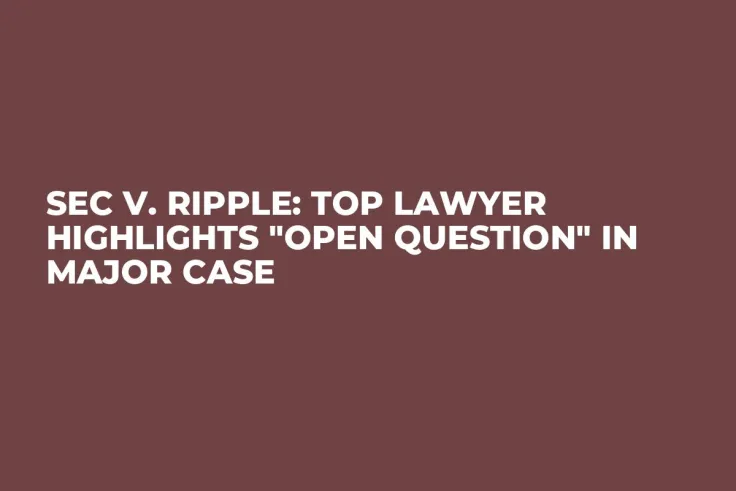As the legal landscape of cryptocurrencies continues to be navigated in courtrooms across the United States, a critical juncture in the ongoing skirmish between Ripple and the Securities and Exchange Commission (SEC) is looming.
In a recent tweet, James "MetaLawMan" Murphy highlighted the imminent ruling from Judge Torres on cross-motions for summary judgment in the SEC v. Ripple case. A significant question in the case is whether the Judge will consider the secondary sales of XRP, Ripple's digital asset.
The crux of the SEC v. Ripple case is whether XRP should be classified as a security. The SEC asserts that it is and should be regulated as such, while Ripple strongly disagrees.
The consideration of secondary sales of XRP — transactions that take place between parties other than the original issuer — adds complexity to the case. If these secondary sales are deemed to be unregistered securities transactions, it could potentially bring significant problems for Ripple and have widespread repercussions for the broader cryptocurrency sector.
Beyond the Ripple case, Murphy's tweet thread outlined a series of important deadlines in a number of other ongoing crypto litigation cases.
These include SEC's ongoing battles against Bittrex, Genesis & Gemini, Coinbase, and Binance, each of which face deadlines in the coming months to file motions to dismiss. Notably, the decisions in these cases could set precedents that may significantly shape the regulatory landscape for cryptocurrencies.
Adding more nuance to the crypto legal framework are several other interesting cases. These include the New York Attorney General's case against KuCoin, asserting that Ethereum (ETH) is a security, and Hodl Law's counter-case seeking a court ruling that ETH is not a security. Additionally, the case of Grayscale's suit against the SEC to convert its Bitcoin Trust (GBTC) to an Exchange Traded Fund (ETF) is one to watch.
The outcome of these cases could dramatically reshape the definition of what constitutes a security in the digital assets space.



 Dan Burgin
Dan Burgin Vladislav Sopov
Vladislav Sopov